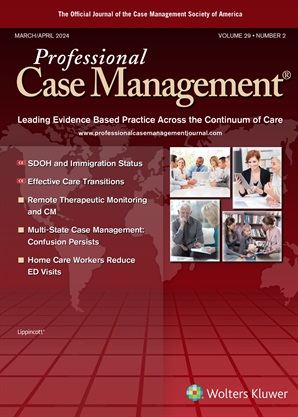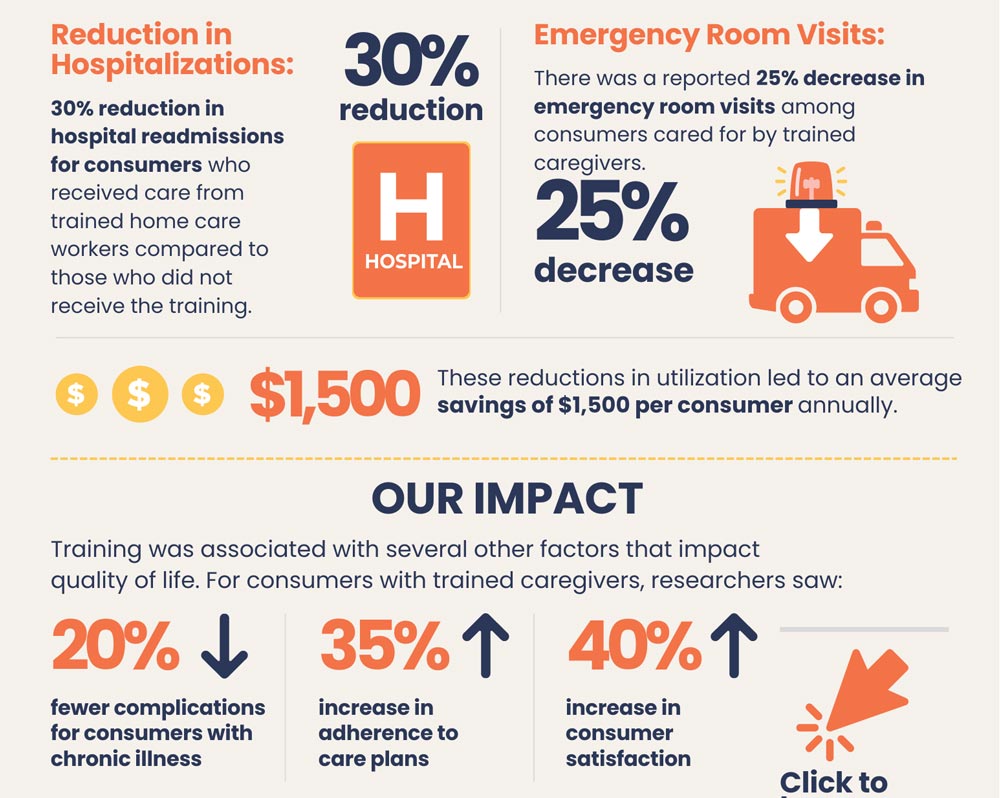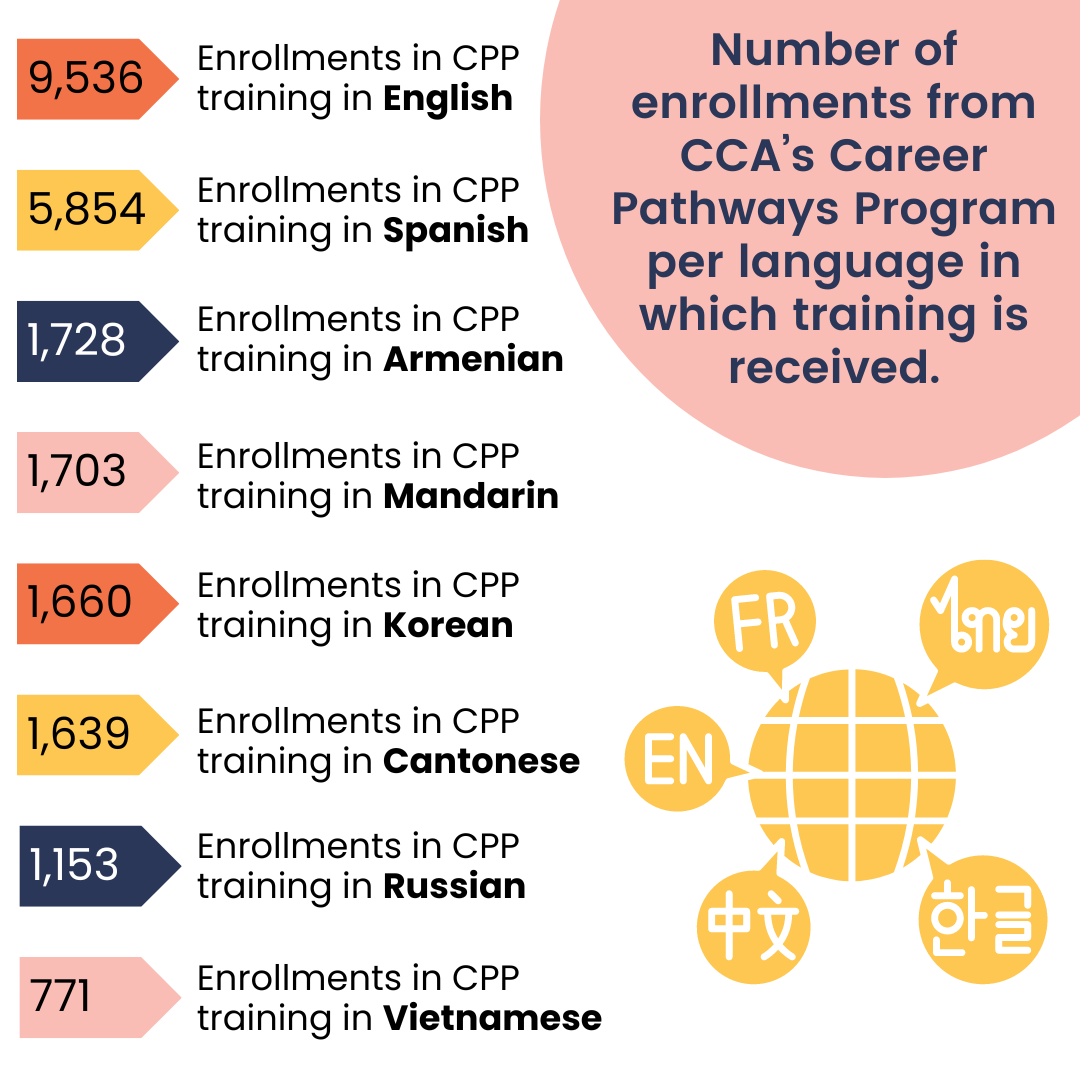A research article appearing in the March/April 2024 edition of the peer-reviewed journal Professional Case Management suggests that high-quality caregiver training provided by the Center for Caregiver Advancement (CCA) contributes to reduced emergency room visits for the consumers in their care. The study also suggests that receiving care from a CCA-trained caregiver appears to reduce healthcare costs for these consumers.

The study led by co-authors Susan A. Chapman, Melinda T. Neri, and Robert J. Newcomer, followed caregivers who completed 16 weeks of in-person In-Home Supportive Services (IHSS) training through CCA. The researchers compared the caregivers who received CCA training to a group of caregivers who did not take the IHSS caregiver essentials skill-building course. The research team tracked each group of caregivers for three years.
The caregiver skill-building program was developed by CCA with support from a Center for Medicare and Medicaid Services Innovation Grant, established by the Affordable Care Act.
Summary of the Impact Study
The purpose of this study was to evaluate whether training a California In-Home Supportive Services (IHSS) home care worker impacted the health care utilization of the IHSS consumers. Home-based personal care services are provided through California’s IHSS program. The research team used a quasi-experimental design involving a group of IHSS consumers whose IHSS (home care) workers completed 16 weeks of in-person home care worker training from the Center for Caregiver Advancement (CCA).
Researchers also used a comparison group of IHSS consumers whose IHSS workers had not received this training. Both groups were members of the same health plan and were enrolled in the IHSS program at the time of enrollment into the study. The training effect was evaluated over three years, comparing emergency room (ER) use and inpatient (IP) hospital stays: 12 months prior to IHSS worker training, 12 months after training, and 13–24 months after training. Researchers collected demographic information on the workers and post-training perceptions.
CCA Training for Caregivers Delivers Positive Results for Consumers and Healthcare Systems
- Reduction in Hospitalizations: 30% reduction in hospital readmissions for consumers who received care from trained home care workers compared to those who did not receive training.
- Emergency Room Visits: There was a reported 25% decrease in emergency room visits among consumers cared for by trained caregivers.
- Healthcare Cost Savings: These reductions in utilization led to an average savings of $1,500 per consumer annually.
Impact of CCA Training: Skilled Caregivers Are Key
Training through CCA was associated with several other factors that impact quality of life. For consumers who receive care from trained caregivers, researchers saw:
- 20% fewer complications for consumers with chronic illness
- 35% increase in adherence to care plans
- 40% increase in consumer satisfaction with their care
CCA was founded in 2000. Over the years, CCA has established itself as California’s most experienced provider of free, accessible training that focuses on a supportive, experience-based learning environment. CCA believes in building a workforce of highly trained caregivers that many Californians can’t live without.
It is estimated that 20% of Californians (1 in 5) will be 65 or older by 2030. California is in a care crisis, with high demand for trained caregivers — a demand that will increase over time as the population in California ages. Research studies that investigate the impact of CCA training have helped to advance policy initiatives that are designed to develop more career pathway opportunities and build professionalization for long-term care workers.
The findings from this research study were published in Professional Case Management. For details, please read the original article here.
Source Citation: Professional Case Management, Volume 29(2):81-87, March/April 2024. DOI: 10.1097/NCM.0000000000000711
For a summary of the study findings at-a-glance, view CCA’s infographic here.























